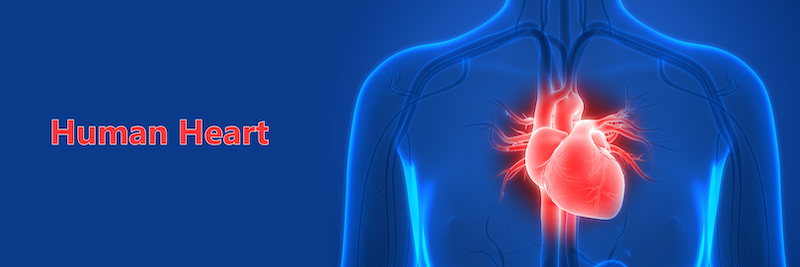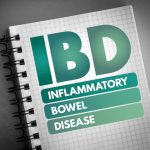I want to start this blog by stating that both genetic factors and environmental (diet & lifestyle) factors are involved in heart health. As a naturopath, when working with clients a main aim is always based on preventative health strategies in addition to supporting individuals whose risk factors have increased due to factors such as high cholesterol, obesity, chronic inflammation, high blood pressure, diabetes, or blood sugar & insulin imbalances. Understanding your genetic risk factors is very important. I also work closely and collaboratively with General Practitioners and ensure that all medications are considered in any treatment strategy.
This blog provides some helpful strategies that reduce your risk from things you may be doing on a day to day basis. These are known as preventable risk factors.
Your Heart & Cardiovascular Disease
Of the common preventable health conditions prevalent in Australia today, heart attack and cardiovascular disease remain one of the deadliest. In fact, cardiovascular disease accounts for one in four deaths in Australia. Research, education and advances in both treatment and prevention have helped to reduce deaths, but it remains a significant health issue for many of us; three-quarters of Australians are at risk of developing cardiovascular disease due to both preventable and non-preventable risk factors.
What is a Heart Attack?
A heart attack, also known as a myocardial infarction, usually occurs when one of the arteries supplying blood to the heart become blocked, cutting off blood (and oxygen) to the heart. Heart attacks can occur spontaneously but are most often caused by cardiovascular disease and can be seen as the culmination of the many different damaging processes that occur in cardiovascular disease.
The cardiovascular system, made up of the heart, arteries, veins, and capillaries, is a delicate and finely tuned system that supplies oxygen and nutrients to every cell in the body. It relies on flexible, unobstructed blood vessels to maintain the pressure and flow of blood within a very tight range, and its function affects many other systems within the body. High blood pressure, cholesterol, and chronic inflammation leave the cardiovascular system and the heart vulnerable to dangerous plaque build-up in arteries. These plaques can occlude arteries and cut off blood supply entirely and can even break away from artery walls to form blockages in other areas, including veins in the leg and even the lungs. These plaques may occlude the arteries of the heart itself and block its own blood supply, triggering a heart attack.
Some of the warning signs and symptoms of a heart attack include:
- Chest pain, such as a feeling of pressure or fullness in the chest. Pain may radiate into the jaw, back, arm, or neck
- Nausea and vomiting
- Feelings of anxiety and dizziness
- Sweating
- Shortness of breath or difficulty breathing
Symptoms including pain may come and go and typically last for several minutes. Some people may have no symptoms at all – something that is known as a “silent heart attack”.
Risk Factors for Heart Attack
Some risk factors are things you can’t change about yourself, such as:
- Age – the risk of heart attack increases as you get older
- Sex – being male increases your risk until menopause for women when risk factors increase
- Family history – you are more likely to have a heart attack if other people in your family have
Other risk factors are things within your control (or are issues that can be addressed through treatment strategies), such as:
- Smoking
- High cholesterol
- High blood pressure
- Low physical activity
- Obesity and overweight
- Type 2 diabetes
- Stress
- Sleep deprivation
- Drinking too much alcohol
Assessing Your Risk
If you are in a higher risk category, your GP may assess your risk of heart attack and may refer you for tests, including:
- Electrocardiogram
- Angiogram
- Cholesterol blood test (also known as a lipid profile)
- Hs-CRP (a blood test that looks for markers of inflammation)
You may also be referred to a cardiologist for more advanced assessment.
In addition to the above testing, naturopaths may refer you for tests such as:
- Blood glucose and blood insulin tests
- Homocysteine test (can indicate deficiencies in nutrients that can impact your cardiovascular health)
- Fatty acid profiles (to assess your level of good omega-3 fats compared to omega-6)
Other tests may also be recommended, depending on your individual health needs, such as thyroid testing, to better understand other factors which may be contributing to your condition.
Naturopathic Strategies for Heart Health
The good news is that diet and lifestyle changes can make a huge positive impact on your risk of cardiovascular disease and heart attack. Protecting yourself from heart attack means working towards maintaining a healthy cardiovascular system overall, as well as looking after your general health and wellbeing. Naturopathic strategies for protecting heart health take a holistic approach, looking at both the cardiovascular system specifically, as well as fostering healthy daily lifestyle practices to support your health more generally.
Diet
Eat Plenty of Fibre-Rich Fruits and Vegetables
It is recommended that we eat 5 or more serves of vegetables and 2 serves of fruit every day, yet a whopping 90% of us don’t currently meet this recommendation. Increasing your fruit and vegetable intake is a great place to start with supporting your heart health, as eating 5+ serves of vegetables can reduce your risk of CVD by nearly 17%.
Fruits and vegetables protect against cardiovascular diseases in a number of different ways:
- They contain heart-healthy vitamins, minerals, and phytochemicals such as vitamin C, magnesium, potassium, carotenoids
- They are rich in inflammation-fighting antioxidants
- They contain both soluble and insoluble fibre, which help to lower LDL cholesterol levels and reduce blood pressure
Choose a variety of vegetables and fruits and try to eat many different colours of vegetables and fruits each day. This way you can be sure you are maximising your nutrition, as many of the antioxidant and health-promoting nutrients in vegetables and fruits are found in the pigments that gives them their colour.
Reduce your intake of refined and added sugars
Eating foods and drinks that are high in refined and added sugars significantly increases your risk of developing cardiovascular disease, even if you are a healthy weight. A high intake of sugar signals to the liver to make more LDL (“bad”) cholesterol, and also leads to higher levels of triglycerides. Sugar also increases inflammation in the body, a risk factor for developing cardiovascular disease. Keep an eye on food labels and avoid foods with added sugars, even if they are “natural”. Better yet, focus on foods found in the outside edges of the supermarket that don’t require packaging – these foods are typically lower in sugar and other additives.
Make no mistake that processed carbohydrates turn to glucose in your blood and have a huge impact on insulin spikes and cholesterol. Blood sugar spikes and lows affect blood vessels, blood pressure and more – eat more raw and wholegrain food is always my philosophy when improving cardiovascular health.
Reduce your intake of trans and saturated fats
Trans fatty acids, a type of dietary fat found in deep fried foods, increases the risk of cardiovascular disease by increasing “bad” LDL cholesterol and lowering “good” HDL cholesterol levels. These types of fats increase inflammation through the body and have been found to increase the risk of not only heart disease but also diabetes. In fact, research suggests that on a “per calorie” basis, trans fats increase the risk of heart disease more than any other nutrient!
The evidence for saturated fats, on the other hand, is less clear cut. While previous evidence has suggested that their intake needs to be reduced for heart health, emerging evidence shows that reducing intake of saturated fats may not have as significant an effect in the long term as was once thought, although the jury is still out. Reducing your intake of saturated fats will help to reduce serum cholesterol levels and may also be protective against heart disease but may not be the panacea for heart health that it was once thought to be. It is still prudent to be mindful of your consumption of saturated fats, which can easily take the place of unsaturated fats such as olive oil, which have positive health effects. Replacing even some of your saturated fat intake with unsaturated fats from foods such as walnuts and olive oil can help to improve your health and reduce your risk of cardiovascular disease.
Limit your Intake of Red Meat
Our modern Western diets contain far too much red meat, and it is making us sick. Consumption of both processed and unprocessed varieties of red meat is significantly associated with cardiovascular disease. Fish and poultry, on the other hand, don’t raise your risk, and fish in particular can be beneficial in protecting heart health. Keep red meat intake to a minimum – once a week or so – and instead choose fish, poultry, and vegetarian protein sources such as lentils, beans, tofu, and eggs.
Reduce your intake of salt
Excess salt in your diet can increase your blood pressure, putting you at risk of developing cardiovascular disease and even stroke. Added salt is difficult to avoid in processed foods, so reading labels is imperative when it comes to cutting down on your salt intake. You can also reduce your salt use in cooking by instead using plenty of fresh herbs and spices to keep dishes full of flavour, while adding in extra antioxidant goodness to your meals.
The Mediterranean Diet
I adore the original Mediterranean diet and it continues to be the healthiest way of eating in most studies. If you prefer to have a more structured dietary plan, the Mediterranean diet is a wonderful, healthy option for improving heart health. Based on the traditional diets of people from the Mediterranean region in the 1960s, the Mediterranean diet is low in processed foods like pastries and pre-packaged foods, and rich in nutrient-dense vegetables, fruits, and whole grains. Fish is eaten in moderate amounts, and meat, dairy and eggs are consumed in low amounts – about once a week or less.
Some of the heart-healthy benefits of the Mediterranean diet include:
- Reduces cholesterol levels
- Protects against oxidative stress
- Protects against inflammation
- Reduces the “stickiness” of platelets to help slow down the development of plaques in arteries
- Reduces other risk factors of cardiovascular disease, including waist-hip ratio,
The DASH Diet
Another diet to consider for heart health is the DASH diet. The DASH diet was developed specifically to tackle hypertension and is similar to the Mediterranean diet in terms of both its content and its beneficial effects on heart health. In addition to helping manage blood pressure, the DASH diet has been shown to help with high cholesterol levels and can even be a useful tool for weight loss and is now used as a treatment tool for other chronic diseases, too.

Functional Foods and Heart Healthy Nutrients
Garlic
The humble garlic is a fantastic food for helping to keep your heart healthy. Extensive research has shown that garlic can help to combat cardiovascular diseases in a variety of ways. Garlic can help to reduce blood pressure, cholesterol, and triglyceride levels, as well as inflammation, and has been shown to improve several markers of cardiovascular disease such as arterial wall thickness. In addition to its benefits for heart health, garlic has been shown to be good for kidneys and liver health, and even helps to feed good gut bacteria, making it a fabulous addition to the diet for overall wellbeing. Buy whole garlic bulbs and crush fresh yourself to add to cooking and salad dressings, or roast whole bulbs to go with Sunday night roast vegetables.
Cacao
Cacao is a powerhouse food when it comes to heart health, thanks to its heart-healthy flavonoids, and minerals such as magnesium. Studies have found cacao can help to lower blood pressure and reduce the stickiness of platelets, to help prevent the build-up of plaques on artery walls. Remember to choose raw cacao or dark chocolate and avoid heavily sweetened products like milk chocolate – the sweetener, dairy, and food additives in these types of products will counteract any benefit offered by the cacao.
Green Tea
Green tea is a great option to include in your diet for heart health. It contains an abundance of heart healthy polyphenols like epigallocatechin and resveratrol, which protect against cardiovascular disease. Green tea also has much less caffeine than black tea of coffee. Be mindful however that caffeine can be stimulatory which is why I never recommend in excess especially when someone has high blood pressure. In the right quantities it is a beautiful cardiovascular food source.
Spices
Spices such as turmeric, cinnamon, ginger, paprika, cumin, and pepper, have all been found to help with cardiovascular health. These foods contain high levels of phytochemicals that can reduce blood pressure and fight oxidative stress and inflammation. Add to soups, stews, and curries, or use in drinks such as chai and turmeric lattes. They can also be a great addition to foods to replace salt for flavouring dishes.
Antioxidants
Antioxidants fight inflammation and oxidative damage in the body, processes which can help to fight the damaging effects of the Western diet on heart health. There are so many different types of antioxidants in our foods, especially in vegetables and fruits. Some of the most-studied antioxidants for heart health include:
- Lycopene: found in tomatoes, lycopene is a type of carotenoid that is even more potent at fighting oxidation than vitamin E. It has been found to fight atherosclerosis and may even help to reduce blood lipid levels. Lycopene levels are highest in cooked tomatoes, so try adding grilled tomatoes to your breakfast or salad, or even cook up a tomato soup with plenty of garlic.
- Resveratrol: an antioxidant found in grapes, red wine, and green tea. Resveratrol has been extensively studied for its health benefits, including helping with cardiovascular disease, type 2 diabetes, and even cancer. Resveratrol reduces inflammation and helps with blood pressure, as well as preventing platelets clumping together in the blood. If you are going to drink alcohol, low to moderate red wine consumption is what I recommend. Excess red wine, as with any alcohol is damaging to your cardiovascular health.
- Quercetin: this antioxidant is found in a wide range of foods, including berries, cacao, citrus fruits, onions, broccoli, tomatoes, red grapes, and tea. Quercetin helps to lower blood pressure and prevent atherosclerosis, as well as opening blood vessels and reducing overall inflammation.
- Vitamin C: a potent antioxidant that helps to protect blood vessels from oxidative damage and protects LDL cholesterol molecules from being damaged. Vitamin C is also essential for healthy tissue repair, so getting sufficient in your diet is vital. Vitamin C can be found in foods such as citrus fruits, strawberries, broccoli, and capsicum.
CoQ10
CoQ10 (AKA coenzyme Q10) is another antioxidant but deserves its own section because of its powerful antioxidant effects and its affinity for protecting the heart specifically. CoQ10 is produced by all cells of the body and is typically found in high concentrations in the heart, but our levels of this all-important micronutrient decrease with age, resulting in a need to supplement. CoQ10 supplementation is particularly important for those on statins, as these medications can deplete the body of coQ10. Multiple different forms of CoQ10 supplement are available on the market right now, so speak to your naturopath for advice on the right supplement form for you.
Magnesium
Magnesium is a vitally important mineral in the body and plays a role in over 300 functions! It is a mineral that many people can become deficient in, particularly as it can become depleted when we are stressed – and in our high-stress world, chronic stress affects many of us. Frequent leg cramps are a sign that you may be low in magnesium. Supplementing with magnesium has been shown to help reduce blood pressure, prevents plaques from become calcified and hardened, and helps to open up arteries and veins for better blood flow (a process known as vasodilation). It is also essential for balancing blood sugar levels, improving sleep and reducing stress which are all risk factors for reduced heart health. Magnesium can be found in abundance in many foods, including dark green leafy vegetables, nuts and seeds, and legumes such as lentils.
Magnesium is the blood of plants – remember this statement…..
Omega 3 Fatty Acids
Omega 3 fatty acids truly are so important to good health, so it’s no surprise to find them on the list of nutrients for heart health. They are vital for counteracting the inflammation of their cousins, omega-6 fatty acids, which can be found in many of the foods popular in the Western diet. They have a demonstrated positive effect on the heart, helping reduce arrhythmia (irregular heartbeat), preventing platelets from sticking together to form clots, and improving the health of blood vessels. They also help to reduce inflammation and lower blood pressure, too. Omega 3 fatty acids are found in oily fish such as salmon, tuna, and sardines, as well as in walnuts, sunflower seeds, and flax seeds. Enjoy one or two serves of fatty fish per week and try adding walnuts and sunflower seeds to salads. Ground flax seeds can easily be added to porridge or even smoothies!
Fish oil supplements can also be helpful, but many supplements on the market are very poor quality and can even contain rancid oils. Speak with your naturopath about finding a high-quality product. Vegan options are also available and are usually algae-based.
Lifestyle
Exercise Daily
Almost two thirds of Australian adults are overweight or obese, and the number is unfortunately rising. Our cardiovascular system relies on physical activity to help it pump blood through the body – our veins contain specialised valves that work through physical movement, so keeping active is important for cardiovascular health. Aim for at least 30 minutes of vigorous physical activity each day, working hard enough to at least break a sweat.

Quit Smoking
We know that smoking is detrimental to health in so many ways, including affecting the cardiovascular system. The oxidative stress and toxin exposure from smoking causes damage to blood vessels, among a litany of other negative health outcomes. Quitting smoking can make a big difference to your cardiovascular disease and heart attack risk. If you’re ready to quit, speak to your naturopath to learn about strategies that can help you on your journey.
Stress
Stress is part of our everyday lives and is a protection mechanism, helpful to you when managed well. But, if stress is constant, it can harm you as you are constantly in a “fight or flight” position, and this has enormous biochemical implications as far as your body is concerned. The hormone cortisol is released in response to this stress with scientific studies showing that chronic high levels of cortisol can increase your blood pressure, blood sugar levels, insulin spikes, blood cholesterol and plaque in your arteries, triglycerides and more. All of these things increase your risk factors for cardiovascular disease and heart related problems.
Lack of sleep
Your body considers lack of sleep as a stress on the body also which is why it is now considered “the new carcinogen”. Not only does it affect cardiovascular disease but many other health related conditions. If you are not sleeping well, have sleep apnoea or have terrible sleep habits, the time to fix this is now.
Conclusion
Preventable risk factors are something all of us need to consider for our health. A good diet, daily exercise, stress management, giving up smoking and quality sleep are all enormously important whether you are managing genetic risk factors or proactively improving your overall heart health.

References
Ansari, S. (2020). Heart health and nutraceuticals. In Preparation of phytopharmaceuticals for the management of disorders: The development of nutraceuticals and traditional medicine (pp. 255–272). Elsevier.
Aune, D. (2019). Plant foods, antioxidant biomarkers, and the risk of cardiovascular disease, cancer, and mortality: A review of the evidence. Advances in Nutrition, 10(4), 404–421.
Heart Foundation. (2022). Key statistics: cardiovascular disease—Statistics and information on cardiovascular disease in Australia. https://www.heartfoundation.org.au/activities-finding-or-opinion/key-stats-cardiovascular-disease
Imaizumi, V. M., Laurindo, L. F., Manzan, B., Guiguer, E. L., Oshiiwa, M., Machado Nueno otoboni, A. M., Arauko, A. C., Tofano, R. J., & Barbalho, S. M. (2022). Garlic: A systematic review of the effects on cardiovascular diseases. Critical Reviews in Food Science and Nutrition.
Imo, C., & Za’aku, J. S. (2019). Medicinal properties of ginger and garlic: A review. Current Trends in Biomedical Engineering & Biosciences, 18(2).
Kim, Y., & Giovannucci, E. L. (2021). Association between dietary fat intake and mortality from all causes, cardiovascular disease, and cancer: A systematic review and meta-analysis of prospective cohort studies. Clinical Nutrition, 40(3), 1060–1070.
Lari, A., Sohouli, M. H., Fatahi, S., Cerqueira, H. S., Santos, H. O., Pourrajab, B., Rezaei, M., Saneie, S., & Rahideh, S. T. (2021). The effects of dietary approaches to stop hypertension (DASH) diet on metabolic risk factors in patients with chronic disease: A systematic review and meta-analysis of randomized controlled trials. Nutrition, Metabolism and Cardiovascular Diseases, 31(10), 2766–2778.
Morelli, M. B., Gambardella, J., Castellanos, V., Trimarco, V., & Santulli, G. (2020). Vitamin C and cardiovascular disease: An update. Antioxidants, 9(12).
Mozaffarian, D., Katan, M. B., Ascherio, A., Stampfer, M. J., & Willett, W. C. (2006). Trans fatty acids and cardiovascular disease. The New England Journal of Medicine, 354(15), 1601–1613.
Rabanal-Ruiz, Y., Llanos-Gonzalez, E., & Alcain, F. J. (2021). The use of coenzyme Q10 in cardiovascular diseases. Antioxidants, 10(5).
Ridker, P. M., Koenig, W., Kastelein, J. J., Mach, F., & Luscher, T. F. (2018). Has the time finally come to measure hsCRP universally in primary and secondary cardiovascular prevention? European Heart Journal, 39, 4109–4111.
Samad, G., & Roshanravan, N. (2019). The role of nutraceuticals in the prevention and treatment of hypertension: An updated review of the literature. Food Research International, 128.
Soliman, G. A. (2019). Dietary fibre, atherosclerosis, and cardiovascular disease. Nutrients, 11(5).
Strazzullo, P., D’Elia, L., Kandala, N.-B., & Cappuccio, F. P. (2009). Salt intake, stroke, and cardiovascular disease: Meta-analysis of prospective studies. BMJ, 339.
Tindall, A. M., Petersen, K. S., Skulas-Ray, A. C., Richter, C. K., Proctor, D. N., & Kris-Etheron, P. M. (2019). Replacing saturated fat with walnuts or vegetable oils improves central blood pressure and serum lipids in adults at risk for cardiovascular disease: A randomized controlled-feeding trial. Journal of the American Heart Association, 8(9).
Widmer, R. J., Flammer, A. J., Lerman, L. O., & Lerman, A. (2015). The Mediterranean diet, its components, and cardiovascular disease. The American Journal of Medicine, 128(3), 229–238.
Zhong, V. W., Van Horn, L., Greenland, P., Carnethon, M. R., Ning, H., Wilkins, J. T., Lloyd-Jones, D. M., & Allen, N. B. (2020). Associations of processed meat, unprocessed red meat, poultry, or fish intake with incident cardiovascular disease and all-cause mortality. JAMA Internal Medicine, 180(4), 503–512.










